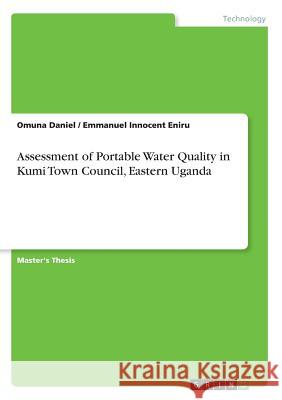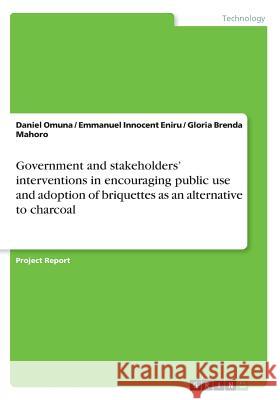topmenu
Wyniki wyszukiwania:
wyszukanych pozycji: 2
 |
Assessment of Portable Water Quality in Kumi Town Council, Eastern Uganda
ISBN: 9783668377097 / Angielski / Miękka / 2017 / 24 str. Termin realizacji zamówienia: ok. 16-18 dni roboczych. Master's Thesis from the year 2016 in the subject Environmental Sciences, Kampala International University, course: Master of Science in Environment management and Development, language: English, abstract: This assessment of portable water quality was conducted to determine the physicochemical and biological characteristics in protected springs and borehole water of Kumi Town Council in Eastern Uganda. Protected springs in the Town council were studied, including Odello, Omulubin and Okwakel protected springs, as well as five boreholes that were functional out of the nine boreholes in Kumi...
Master's Thesis from the year 2016 in the subject Environmental Sciences, Kampala International University, course: Master of Science in Environment m...
|
cena:
144,87 |
 |
Government and stakeholders' interventions in encouraging public use and adoption of briquettes as an alternative to charcoal
ISBN: 9783668375352 / Angielski / Miękka / 2017 / 20 str. Termin realizacji zamówienia: ok. 16-18 dni roboczych. Project Report from the year 2015 in the subject Environmental Sciences, language: English, abstract: The level of use and adoption of biomass briquette was used as a proxy for the availability of solid wastes for the households and was expected to have a positive relationship with the probability of economic viability for briquette technology as the alternative renewable energy source. Previous studies have shown that household size and availability of materials influenced adoption decisions. The objective of this study was to establish ways in which the government and other stakeholders can...
Project Report from the year 2015 in the subject Environmental Sciences, language: English, abstract: The level of use and adoption of biomass briquet...
|
cena:
138,52 |










